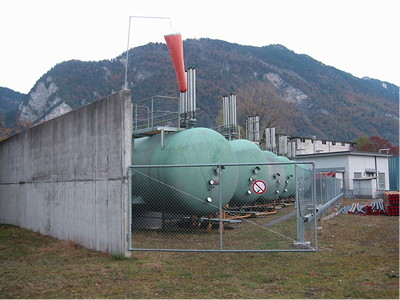Risk Analysis on Liquefied Petroleum Gas (LPG, Propane, Butane) |
||

|
Liquefied petroleum gases such as propane and butane are fossil fuels easy to store and transport. Large LPG storage tanks and transport tankers pose a very high risk for the immediate surroundings. The risk may still be acceptable if correct and state-of-the-art storage and transport engineering in combination with sufficiently large safety zones are applied. The safety distances depend on the amounts, type of storage, and safety features and engineering. The slide presentation sketches the quantified methodology of risk analysis used in Switzerland in the domain of control of major chemical hazards. Basler & Hofmann has developed a Guideline for Risk Analysis of LPG storage tanks (not available online) and a case study (both documents in German only). Engineering professionals and risk analysis experts may be able to understand and derive the tools from the documents in German. In addition, the highlighted papers provide a good overview on how Switzerland controls major chemical hazards.
| |
| [Home] | [Top] | |